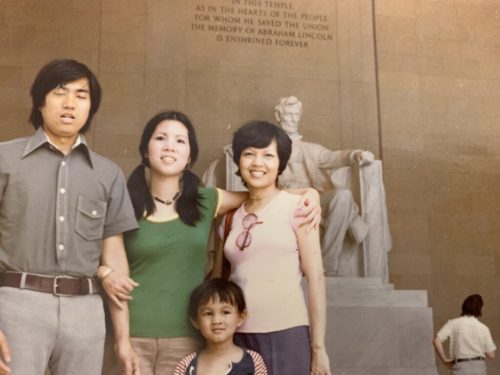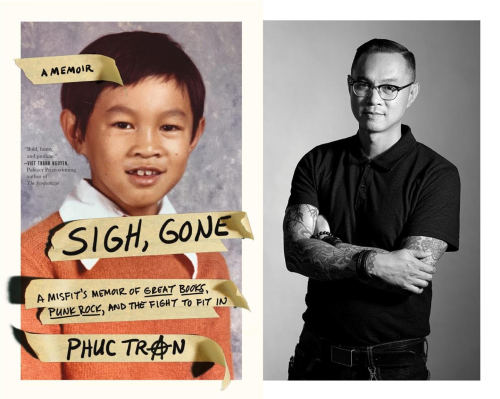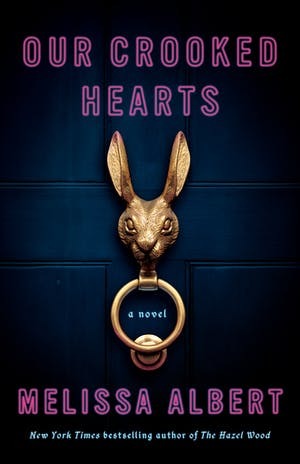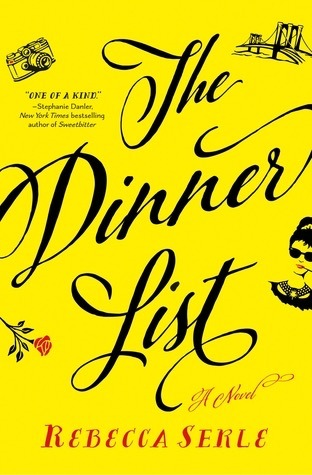#flatiron books
New from Flatiron Books, Sigh, Gone: A Misfit’s Memoir of Great Books, Punk Rock, and the Fight to Fit In, by Phuc Tran. In 1975, during the fall of Saigon, Phuc Tran immigrates to America along with his family. By sheer chance they land in Carlisle, Pennsylvania, a small town where the Trans struggle to assimilate into their new life. In this coming-of-age memoir told through the themes of great books such as The Metamorphosis,The Scarlet Letter,The Iliad, and more, Tran navigates the push and pull of finding and accepting himself despite the challenges of immigration, feelings of isolation, and teenage rebellion, all while attempting to meet the rigid expectations set by his immigrant parents.
Post link
Our Crooked Hearts
By Melissa Albert
Melissa Albert terrifies and inspires me in equal measure.
Her books have an otherworldly quality that gives you the sense that as you read them you are changing - or the world around you is changing, or perhaps, being revealed for what it truly is - and if you don’t stop, things will never be the same. Our Crooked Hearts is no exception.
I read Our Crooked Hearts late into the night while peering over my pages to make sure nothing was lurking in the shadows. Unspooling in dual narratives of a mother and daughter during their tumultuous teenage years as they discover themselves and their magic, Albert renders a world of misshapen motherhood, flailing youth, forging friendships, and just-this-side of possible witchcraft.
But if we’ve learned anything from The Hazel Wood, it’s that nothing is free. What I love most about Albert’s work is that there is nothing gratuitous or excessive. She manages to conjure fear, terror, sadness and rage - and it all serves a purpose. The characters are all flawed and flailing but not feckless; they strive to protect, to learn, to rectify, to save. This is evident in the conclusion of the book, which I won’t spoil for you here, but what I will share is wholly satisfying and positively positive. Yes, amidst a book that is terror incarnate, there is, dare I say, somehow, hope.
What is also remarkable about Albert is her ability to wield the written word. She is not only writing, she is crafting a new language. Her prose is like if Neil Gaiman and Maggie Stiefvater had a baby and it were raised by Patti Smith. She crashes words together and creates the most unlikely metaphors that make so much sense it hurts. She writes with the angst of a teenager but the wisdom of a beat poet and the heart of a goddess who still loves humanity. Her text is so palpable that in reading it, I feel like I am participating in a secret ritual that may in fact conjure actual magic. Her writing is the stuff of future lore, of fractured spells, of midnight swims in moon-bleeding waters. She is inventing a story and a form - and it’s the perfect love letter scrawled in black magic for the raging teen trapped inside of us all.
Post link
The Whisper Network
by Chandler Baker
Once I had turned the final page of The Whisper Network, I revisited how the book was categorized. How was this page-turning whodunnit and what was actually done catalogued? Was this a thriller? A piece of literary fiction? A crime novel? Adult fiction? What I found it under was “Women’s Fiction.”
Hm. Then I wondered, is there a “Men’s Fiction” section?
When I started reading the book, I didn’t know what I was getting into, ostensibly a high-functioning office politics drama. But The Whisper Network is delightfully decadent and also so literary that I found myself highlighting passages because they rang so true. This has become more of a rarity in my experience of crime-type dramas and so-called “women’s fiction.” Books of this ilk tend to sacrifice savvy for salaciousness and three-dimensional characters for two-sided arguments. This book does neither. It creates a complex tapestry of the inner workings of a corporation, particularly the legal department - an apt department indeed, considering sexual harassment becomes the topic of debate. Where better to hash it out than amongst the best legal council possible?
And yet, this plot makes the arguments regarding sexual harassment and power in the workplace that much more nuanced. Because if a list were to surface - say, a list of individuals to avoid in your career - would you take it an a gift and sidestep? Or would you see it as an offense against said individuals’ possibly very reputable characters?
And I simply could not put it down. I couldn’t wait to see what happened to our varied heroines as they navigated the muddy waters of their careers. Because in those moments, they were us - waffling, debating, discerning, hashing, taking action, failing, and regretting, - plotting, researching, networking, investigating, reflecting, discovering, raging and triumphing. And so the craftiest bit of the novel is this - a device I cannot recall having seen - or, read. The book shifts regularly to first person plural.
What? the Literary geek in you exclaims.
Yes, “we” are included for whole chapters. And with each “we” it’s possible I’ve been manipulated into reading on and on, or it’s possible “we” includes me in the war so I don’t feel so alone in my own. But in the end, we don’t care one way or another, because just like in life, we don’t feel like there’s anywhere to go but forward.
*B3 received an ARC from Netgalley in exchange for an honest review.
Post link
The Dinner List
by Rebecca Serle
A delightful and sad amuse bouche that defies fictional categorization and does what great literature has the potential to do: transcend. This novel will be described as “unique” because it breaks categorical rules - might it be contemporary fiction? Yes? Magical Realism? Maybe. Time travel? Not exactly, but surreal contemporary? Is that a genre?
Sabrina is throwing her 30th birthday dinner party - and inexplicably, her dinner party is actually her five-person “If I could have dinner with any 5 people” list - both living and dead. Having completed the novel, I still don’t know the how or the why of it. And I also don’t care. How refreshing to drop into a world where there are just as many questions as answers and the author doesn’t feel the need to over-explain! It’s storytelling. This is part of the magic!
The Dinner List is a little as if Audrey Hepburn were part of Caryl Churchill’s Cloud 9 interspersed with episodes of Girls watched nostalgically 5 years in the future of its Series Finale. It conjures the kind of sad longing of Euphoria juxtaposed with the mismatched love of every coupled 20-something in New York that will break up by 30.
The Dinner List could easily have been a kitschy concept book, but it delves deeper. It explores the frustration of having the perfect romantic relationship — albeit one that only exists in a bubble of studio apartment solitude. It touches on the sadness and inevitability of losing friendship due to life choices, because some people just have kids and move to Connecticut. It is bittersweet and complete, a satisfying little package of a book that will leave you a little enlightened and a little sad, and possibly a little empty even on a full stomach.
*Thank you to the publishers for providing B3 with an ARC.
Post link








